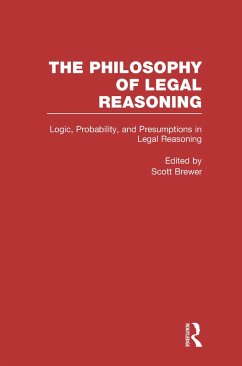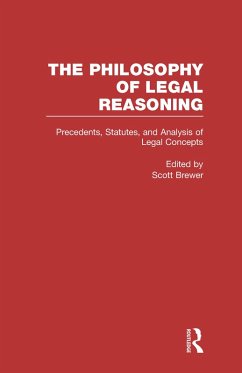
Scientific Models of Legal Reasoning (eBook, ePUB)
Economics, Artificial Intelligence, and the Physical Sciences
Redaktion: Brewer, Scott
Versandkostenfrei!
Sofort per Download lieferbar
42,95 €
inkl. MwSt.
Weitere Ausgaben:

PAYBACK Punkte
21 °P sammeln!
First published in 1998. This five-volume series contains some of this century's most influential or thought provoking articles on the subject of legal argument that have appeared in Anglo-American philosophy journals and law reviews. This volume offers a collection of essays by philosophers and legal scholars on economics, artificial intelligence and the physical sciences.
Dieser Download kann aus rechtlichen Gründen nur mit Rechnungsadresse in A, B, BG, CY, CZ, D, DK, EW, E, FIN, F, GR, HR, H, IRL, I, LT, L, LR, M, NL, PL, P, R, S, SLO, SK ausgeliefert werden.













